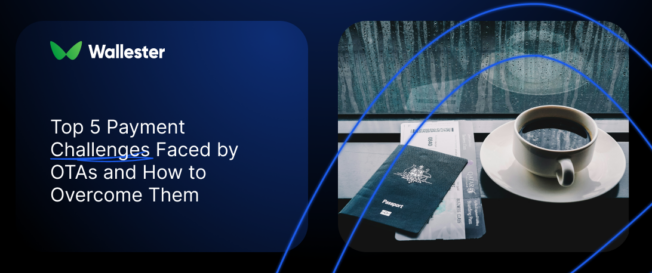Running a travel agency means managing payments to dozens of suppliers across different time zones, currencies, and systems. Delays, mismatched bookings, and security concerns are common. Virtual cards offer a practical way to bring order to the chaos. By using unique, controlled card numbers for each transaction, agencies can simplify operations, avoid fraud, and keep supplier relationships on track. This article explains how virtual cards can make day-to-day travel payments faster, safer, and easier to manage.
Key takeaways
- Virtual cards let agencies issue a unique number for each booking, reducing fraud and confusion.
- Card details aren’t shared with suppliers, improving payment security.
- Real-time tracking helps monitor virtual card payments and spot issues early.
- Transactions are easier to match with bookings, speeding up reconciliation.
- Spending limits and card controls support better cash flow planning.
- Reliable payments help build trust with suppliers and secure better terms.
What are the challenges of B2B payments for travel agents?
Travel agents deal with a wide range of payment issues that can slow down operations and affect both customer experience and profitability. To improve the process, it helps to understand exactly what’s getting in the way.
One major challenge is working with multiple suppliers. Airlines, hotels, car rental companies, and other service providers often have their own systems, currencies, and timelines. Keeping everything consistent and under control becomes harder with each added partner.
Another pain point is cash flow. Agencies are often expected to pay suppliers upfront, even before receiving payments from customers. That timing gap can stretch budgets thin and create financial pressure.
Security is also a concern. Sharing credit card details with multiple suppliers opens the door to fraud and data breaches. Agencies need safer ways to handle payments without slowing things down.
Then there’s the issue of foreign currencies. If you’re booking international travel, you’re probably dealing with:
- Multiple currencies
- Fluctuating exchange rates
- Extra foreign transaction (FX) fees
Each of these adds complexity and can quietly eat into your margins.
Finally, reconciliation tends to be a time sink. When bookings and payments don’t line up perfectly, agents often have to spend hours tracking down errors, matching payments, and resolving disputes.
All of this takes time, attention, and resources – things most travel agencies don’t have to spare.
What is a virtual card?
A virtual card is a digital payment method that provides all the functionality of a physical credit card without the plastic. It exists only in digital form and can be generated instantly for online transactions. Each card includes a unique number, expiry date, and CVV code, but also offers features that make it especially useful for business payments. Multiple cards can be issued from a single account, each with its own limits, merchant restrictions, and validity period.
These cards connect to a main account or credit line but act as a secure buffer between the payer and the recipient. Transactions are processed through standard card networks, while real-time authentication checks apply the rules set for each card. If a transaction doesn’t meet the criteria, it’s declined automatically. Every payment is recorded with full detail – amount, merchant, and timestamp – which feeds directly into connected accounting systems. This setup reduces the risk of fraud, simplifies reconciliation, and supports both single-use and multi-use payment models, depending on the organisation’s needs.
Further Reading: How Virtual Cards Work: The Technology Behind the Solution
Virtual cards for travel agencies: How does it work?
Virtual cards are essentially digital versions of regular payment cards, but with more control and flexibility. For travel agencies, they offer a smarter way to manage supplier payments without the risks that come with sharing physical card details.
Here’s how it works. Once a travel agency sets up an account with a virtual card provider, they can start generating virtual cards right away through an online dashboard or via API if they want to automate the process.
Each card comes with its own unique number, expiration date, and security code, just like a regular card. But here’s the difference: you can customise each one. Travel agents can set spending limits, choose which merchants it can be used with, and even define how long the card stays active.
You can issue a one-time-use card for a single hotel booking or create a reusable card for a frequent supplier like an airline or tour operator. When it’s time to pay, just share the virtual card details with the supplier. There’s no need to expose your actual credit card.
The system also keeps track of everything in real time. You can see payments as they happen, match them to bookings, and pull reports whenever you need. It takes a lot of the guesswork and paperwork out of the process.

Use cases of virtual cards in B2B travel payments
Virtual cards can be used in many ways across the travel industry. They help agencies handle a variety of payment situations more smoothly, whether it’s paying suppliers, managing refunds, or dealing with tight cash flow. Here are some of the common use cases.
The most frequent use is supplier payments. Agencies can create dedicated virtual cards to pay airlines, hotels, and other service providers. This allows for better control over spending and helps maintain trust with partners through reliable, on-time payments.
They’re also useful for handling customer refunds. Instead of relying on traditional payment systems, which can be slow or complicated, agencies can issue a virtual card loaded with the refund amount. Customers can use the card for future bookings or other purchases, which simplifies the process and improves the overall experience.
For corporate travel, virtual cards make it easier to stay on budget. Agencies can set spending limits, restrict where the card can be used, and track expenses more closely. This makes reporting and budget control far more straightforward for both the agency and the client.
During peak travel seasons, managing cash flow can be a challenge. Virtual cards can be set up with specific activation dates and limits, helping agencies plan ahead and spread out spending. This keeps supplier payments consistent, even when budgets are under pressure.
And when there’s a last-minute booking or emergency situation, virtual cards become especially useful. Since they can be generated instantly, there’s no waiting period. Agencies can pay travel suppliers on the spot and keep bookings on track, even under tight deadlines.
Further Reading: The Ultimate Guide to Virtual Card Solutions for Travel Companies
Benefits of virtual cards for travel agencies
Virtual cards do more than process payments. They solve real problems travel agencies deal with every day, from fraud risk to clunky admin work. The result is smoother operations, stronger supplier relationships, and better control over how money flows.
First, there’s security. With virtual cards, agencies no longer need to share their main card details. Each virtual card can be tailored to a specific purpose, with limits on where it can be used, how much can be spent, and when it expires. If something goes wrong, the risk is contained.
They also help with cash flow. Agencies can decide exactly when to load funds and how much to allocate for each supplier. This means less money sitting unused and more flexibility when planning ahead.
Virtual cards reduce human error too. Since each payment is tied to a specific booking, reconciliation becomes faster and less prone to mistakes. That means fewer hours spent fixing mismatches and more time focused on clients.
There are clear cost savings as well:
- Reduced losses from fraud and chargebacks
- Less admin time spent on payment processing
- Stronger negotiating power with suppliers
- Fewer manual fixes during reconciliation
Reliable payments help build better supplier relationships. When suppliers know they’ll be paid on time, they’re more likely to offer flexible terms and access to preferred inventory.
Finally, virtual cards are built to scale. As agencies grow, add more bookings, or work with new partners, the system adapts. There’s no need to expand the finance team just to keep up. Everything stays efficient, no matter how busy things get.
Why use Wallester’s virtual cards as your travel payment solution?
Wallester gives travel agencies full control over how they issue and manage payments, without relying on multiple disconnected systems. Virtual cards can be created instantly, used across currencies, and monitored in real time through a single platform. Whether it’s paying airlines, hotel chains, or local service providers, the process stays consistent and traceable. Every transaction is logged in detail, which helps finance teams stay organised and avoid delays during reconciliation.
The company has spent years working directly with businesses in the travel space. That experience shows in how the platform functions – fast card creation, flexible settings, and built-in tracking that matches real workflows. It’s not a generic tool repurposed for travel; it’s built with actual travel-sector needs in mind. Teams dealing with high volumes and short deadlines benefit from a system that doesn’t slow them down or force them to adapt to rigid processes.
Wallester supports payments in multiple currencies, which is essential for agencies working across borders. Instead of managing several providers or dealing with unpredictable foreign transaction rules, teams can handle all activity from one account. Cards are fully customisable, so each payment can be limited by amount, merchant type, or timeframe. If there’s any unusual behaviour, cards can be frozen immediately. These controls are backed by real-time monitoring and regular system updates to reduce the risk of fraud.
The platform also integrates easily with existing tools. Travel agencies don’t need to rebuild internal systems or retrain staff from scratch. Wallester works alongside popular booking platforms, expense tools, and accounting software, so data moves between systems without friction. This reduces administrative work and cuts down the time spent resolving mismatches between bookings and payments.
With Wallester, agencies get a clear set of advantages:
- Instant card issuance in multiple currencies
- Real-time tracking and full visibility on every transaction
- Flexible rules and controls per card
- Easy connection to existing business systems
- Reliable performance as transaction volume increases
As an agency expands by adding suppliers, entering new regions, or handling more bookings, Wallester continues to support operations without slowing things down. It’s a system that grows with the business and helps teams stay focused on their work instead of chasing payment issues. For travel agencies that need clarity, flexibility, and speed in their financial operations, Wallester offers a virtual card solution that stays steady, even when everything else is moving fast.
Final Words
Virtual cards offer a practical way to fix many of the recurring problems in travel payments. They help agencies move away from manual processes, reduce fraud risk, and handle supplier transactions with far greater precision. What once required multiple systems and constant oversight can now be managed with clear rules, faster processing, and far less stress for internal teams.
The travel industry keeps shifting. Agencies that take payment operations seriously are better positioned to stay efficient, responsive, and competitive. Virtual cards support this by providing tighter control over spending, easier tracking, and tools that match the pace and complexity of global bookings. The result is better coordination, fewer delays, and a noticeable improvement in daily operations.
Choosing the right provider is key. Wallester offers features built around the actual needs of travel professionals, not abstract use cases. From multi-currency support and instant issuance to integration with existing systems, the platform helps agencies move quickly while staying in control. Real-time monitoring and flexible payment settings give teams the tools to manage change without creating new problems.
Agencies thinking about this shift should look closely at their current setup. If payments often create confusion, delays, or unnecessary costs, it’s a strong signal that change is overdue. With proper planning and the right partner, virtual cards can transform a weak point into a strength. What begins as a technical improvement leads to smoother workdays and better business outcomes across the board.
Explore how Wallester Business can support your agency’s financial workflows and improve supplier payments at scale.


